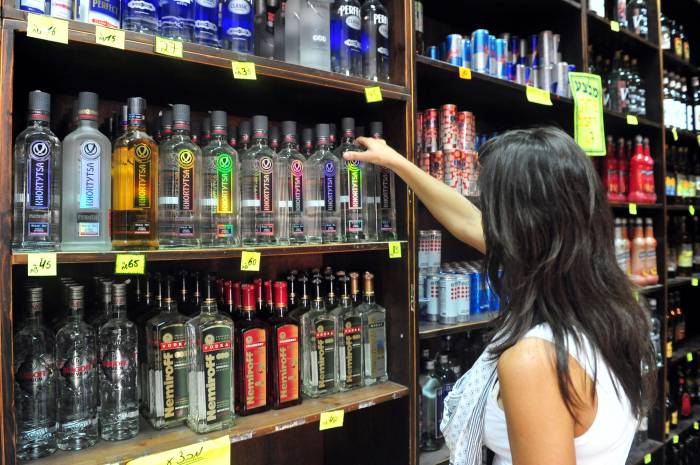Colombia Proposes Major Tax Hike on Alcoholic Beverages Amid Industry Concerns
Proposed increases could double taxes on spirits and raise prices by over 60 percent, sparking fears of smuggling and lost revenue
2025-09-08

The Colombian government has introduced a new tax reform bill that proposes significant changes to the taxation of alcoholic beverages. The draft legislation, presented to Congress yesterday, would increase the value-added tax (VAT) on alcoholic drinks from 5% to 19%. This adjustment would apply to spirits such as aguardiente, rum, whisky, brandy, vodka, as well as wines and other fermented beverages.
Under the proposed law, the tax structure for beer, mixed alcoholic drinks, and similar products would include both an ad valorem component and a specific component. For each degree of alcohol in a 330-milliliter unit of beer or mixed drink, a specific tax of 330 Colombian pesos would be charged. Additionally, an ad valorem tax of 30% would be applied to the retail price, as validated by the National Administrative Department of Statistics (DANE).
For liquors, aperitifs, and wines, the bill sets a specific tax of 750 pesos per degree of alcohol in a standard 750-milliliter bottle. These products would also be subject to the same 30% ad valorem tax. The government has stated that additional revenue generated by these measures will be allocated to fund health insurance programs.
The bill maintains exemptions for products destined for export or for sale in the department of San Andrés, Providencia and Santa Catalina. However, these exemptions will be subject to strict controls and labeling requirements.
Tax experts have called for a more thorough technical analysis of the proposed changes. César Cermeño, a partner at Martínez Quintero Mendoza González Laguado & De La Rosa and director of the graduate program in taxation at Universidad de los Andes, noted that alcohol taxes have been a source of legal controversy in Colombia. He emphasized the need for broad political debate involving all stakeholders in the supply chain before any reform is enacted.
Cermeño also warned about potential unintended consequences. Citing research conducted with the Hernán Echavarría Olózaga Institute of Political Science, he said that higher taxes on alcoholic beverages could encourage smuggling and lead consumers to switch to more harmful substances.
Industry leaders have expressed concern about the impact on regional distilleries and public finances. Esteban Ramos Maya, general manager of Fábrica de Licores de Antioquia (FLA), explained that under current rules, a 750-milliliter bottle of aguardiente pays about 17,500 pesos in taxes. If the reform passes, this figure would rise to 33,300 pesos per bottle. Ramos Maya estimated that the retail price of Aguardiente Antioqueño could increase from around 40,000 pesos to between 60,000 and 65,000 pesos—a jump of over 60%. He warned that such increases could drive consumers toward cheaper alternatives or illicit products.
Diego Angelillis, general manager of Industria Licorera de Caldas (ILC), described the proposed changes as “devastating” for producers of rum and aguardiente. He argued that higher taxes would make their products uncompetitive and stimulate both smuggling and counterfeiting. Angelillis also pointed out that reduced sales would hurt funding for health and education programs supported by alcohol taxes.
Distributors have echoed these concerns. Luz María González, chief legal officer at Dislicores, said that raising VAT from 5% to 19% and increasing consumption taxes would impose an excessive burden on the formal industry and consumers alike. She warned that higher prices could prompt consumers to switch from quality products to cheaper options with lower safety standards—potentially increasing demand for counterfeit or smuggled alcohol.
Aguardiente remains one of Colombia’s most popular spirits. Last year alone, more than 95 million bottles were sold nationwide. The leading brands include Aguardiente Antioqueño from FLA with over 60 million units sold; Amarillo de Manzanares from ILC with 13 million; Aguardiente Blanco from Licorera del Valle with nearly 10 million; Aguardiente Néctar with just over seven million; and Aguardiente Caucano with more than three million bottles sold.
Industry representatives warn that if prices rise by more than 60%, as projected by Ramos Maya, sales could fall sharply across all major brands. They argue that such declines would not only affect producers but also reduce tax revenues earmarked for public health programs.
The government expects to raise an additional 435.8 billion pesos through these new taxes if Congress approves the bill. The debate is expected to intensify in coming weeks as lawmakers consider both fiscal needs and potential risks associated with higher alcohol taxes.
Founded in 2007, Vinetur® is a registered trademark of VGSC S.L. with a long history in the wine industry.
VGSC, S.L. with VAT number B70255591 is a spanish company legally registered in the Commercial Register of the city of Santiago de Compostela, with registration number: Bulletin 181, Reference 356049 in Volume 13, Page 107, Section 6, Sheet 45028, Entry 2.
Email: [email protected]
Headquarters and offices located in Vilagarcia de Arousa, Spain.